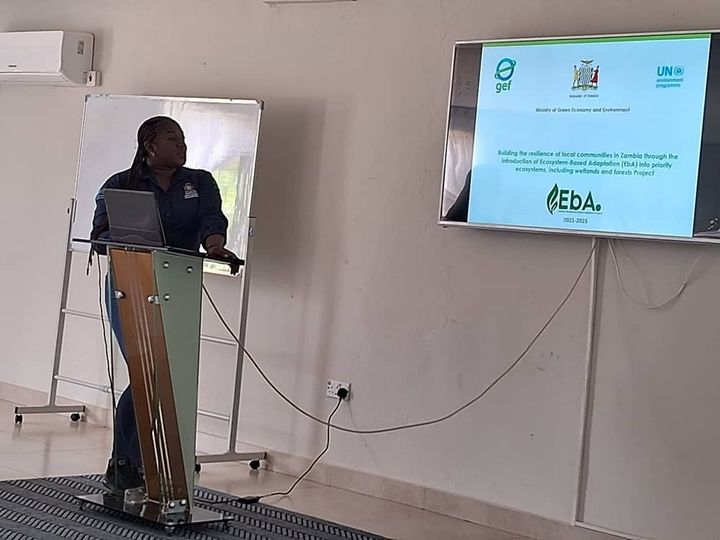Traditional Knowledge Key to Success in Climate Change Adaptation
The Ministry of Green Economy and Environment has reported significant success in the Ecosystem-Based Adaptation (EbA) Project, attributing achievements to the incorporation of local and traditional knowledge in designing climate change adaptation interventions.
Project Manager Ms. Nellie Ngulube emphasized the crucial role of indigenous knowledge in building adaptive capacity, asserting that it provides a profound understanding of the challenges faced by communities.
Ms. Ngulube clarified that while traditional knowledge played a pivotal role, the project utilized scientific insights to inform the spatial and temporal prioritization of identified adaptation interventions.
The four-year project, set to conclude in 2025, is actively implemented in Luapula, Northern, Central, and Muchinga provinces. It aims to leverage wetlands and forests as essential environmental and economic resources, enhancing ecosystem restoration and bolstering resilience against climate change impacts.
Highlighting the reliance of 74% of Zambia’s poor on natural resources, especially wetlands and forests, Ms. Ngulube underscored the alignment of adaptation interventions with government policies and legislation focused on restoration, protection, and conservation.
She stressed the need for robust policies and laws integrating climate change into development planning, underlining their role in facilitating climate financing for EbA activities.
Ms. Ngulube outlined the project’s achievements in enhancing institutional and technical capacity at national and local levels. This includes the integration of EbA into environmental and ecosystem management planning, ultimately fostering climate change resilience in communities near wetlands and forests.
However, Ms. Ngulube acknowledged challenges in implementing ecosystem-based adaptation, particularly in addressing the unequal distribution of benefits and trade-offs. She cited examples such as balancing the interests of farmers and fishermen in forest ecosystems.
To tackle these issues, she advocated for a participatory approach in developing enforcement mechanisms that strike a balance between formal and traditional structures, taking into account local economies and livelihoods affected by climatic variability.
In conclusion, Ms. Ngulube emphasized the significance of acknowledging and understanding diverse benefits and trade-offs, asserting that a participatory and informed approach is essential in navigating the complexities of climate change adaptation at both formal and community levels.



